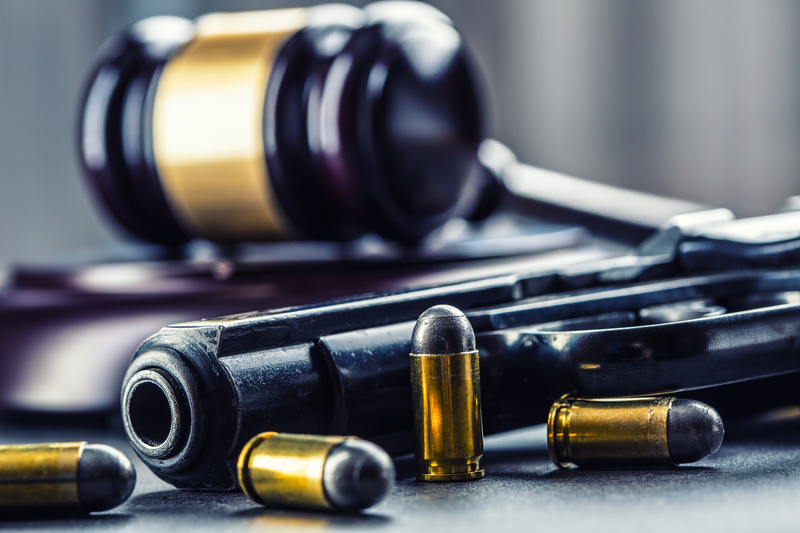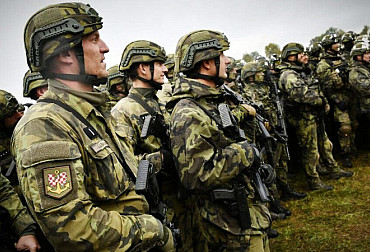Controversial changes introduced by the approved amendment to the Firearms and Ammunition Act
On 24 April 2024, the Government approved a draft amendment to Act No.119/2002 Coll., which incorporated two changes to the existing Act for a transitional period until the new Act (90/2024 Coll., which will come into force on 1 January 2026) comes into force.

The first change is the mandatory reporting of suspicious transactions by traders, where the amendment introduces sanctions for failure to comply with this obligation. The problem with this point is that there is no definition of what a suspicious transaction is and how a trader should recognise it. Understandably, if someone tries to buy weapons illegally, i.e. without proper authorisations, traders already report this phenomenon. However, the transactions in question are supposed to be those for which the holder is authorised under the Arms Act and has the appropriate 'documents'. It is not even clear at the moment whether the draftsman will draw up a methodology or a list of suspicious behaviour which would clearly define what businesses should actually focus on. Unsurprisingly, this provision has not generated much enthusiasm among the professional community.
Similarly, the second amendment introduces the possibility for the police to seize weapons on the basis of information or an opinion from public authorities (OVM) that the person handling them poses a serious danger to internal order or security. Already during the negotiations on the new Weapons Act, a number of organisations, including LEX z.s., drew attention to the fact that the provisions in question did not sufficiently describe the administrative process of the authorisation in question and also lacked a definition of any remedies. Thus, it is not entirely clear how quickly, or within what deadlines, the police must decide on the OVM's opinion. It is also not clear by when the police are obliged to return the seized weapons to the holder if they find that the information given by the public authority is false. There is also the question of who will compensate the holder for the harm caused by the procedure - for example, if the opinion is found to be intentionally false.
In addition, compared to the approved wording under the future law, this proposed wording differs in that it is also intended to apply to category D weapons, i.e. for example paintball guns or instructional inactive cuts. It should be noted here that the state does not keep records of these weapons (it is legal to acquire these weapons at age 18 without a firearms license) and thus does not know who owns such weapons. Combined with the authority of the police to enter a dwelling if the holder in question refuses to surrender the seized weapon, this creates a hypothetical space to use a "public authority report" to enter a dwelling without a warrant, and to any person in the country that some OVM writes that the person in question has tampered with a paintball gun. In other words: a public authority notifies the police that an "unpopular opposition deputy" brandished a paintball gun in the town square, even though he has none. On the basis of such a statement, the police will then approach the citizen in question and demand the surrender of the paintball gun in question. Logically, however, the citizen who has no weapon will refuse to surrender the non-existent weapon, at which point the police will be entitled to enter the citizen's home in order to locate and seize the alleged weapon.
Both of these provisions are obviously highly controversial and a heated debate can be expected in the Chamber of Deputies, where the press is now heading. This debate, by the way, has already taken place in the inter-ministerial comment procedure.
It is also a question of why the Ministry has tabled this amendment, which - if passed - will only be in force until 1 January 2026, i.e. only for about a year and a quarter (assuming an accelerated legislative process). At that time, the new Arms Act No 90/2024 Coll., which was passed by Parliament and signed by the President this spring, will come into force.
Although the petitioner argues that there is a need to respond to the tragic events of the December mass murder in the Klánovice Forest and at the Faculty of Arts of Charles University, this argument cannot be considered acceptable because the investigation has still not been concluded, the lay and professional public still does not have valid facts about the case, and a systemic failure under the current legislation cannot be ruled out. It is therefore surprising that in this situation a change in the law is being prepared to respond to the situation without the situation having been validly described to date.
Ing. Jakub Smetánka MPA
He is the Vice President of LEX z.s. - Association for the Protection of Gun Owners' Rights, an independent citizens' association that has consistently defended the interests of legal gun owners since its founding in 1998. It is a respected partner of the legislature and the executive in the modification of the law on weapons and related regulations. It organises lectures and shooting competitions as part of its supporting activities. It cooperates with similar organisations in Europe.





















